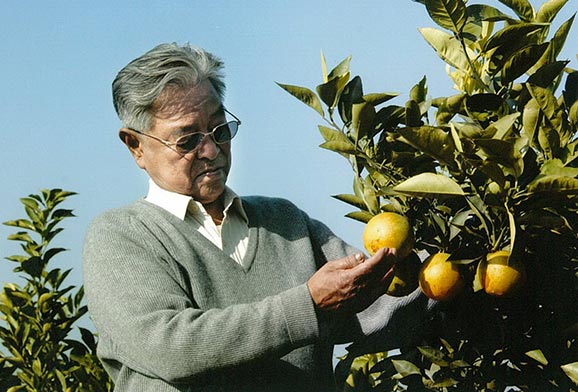Citrus appeal in 'Chu oranges'
 |
|
The "Chu orange" gets its name from the legendary orchard owner Chu Shijian. Chu oranges are small, but have thinner peel, more juice, less pulp and stronger flavor. [Photo provided to China Daily] |
They chose the species because Chu once had some bingtang oranges in prison, and the distinctive taste and texture lingered in his memory, his wife says. Compared with the sweet orange (Citrus sinensis 'Osbeck'), the bingtang oranges he had were small, but had thinner peel, more juice, less pulp and stronger flavor, Ma explains.
They were confident they could cultivate sweeter and less sour bingtang oranges in Yunnan, where the climate and terroir are particularly suitable for oranges, thanks to plentiful sunlight, appropriate day and night temperatures, spring water for irrigation, and soft soil that stimulates roots to grow, Chu says.
It was hard at first: The bingtang orange was not as popular as the sweet orange in China at that time, and there were few books on how to grow it.
In fact, their orchard had previously been used to produce bingtang oranges, but a majority of the trees had died because of pest damage.
The Chinese don't like lots of sourness in fruits, Chu adds, so it was a tough challenge to balance the sweetness and sourness.
















